- Stay Connected
 Abraham Lincoln
If given the truth, the people can be depended upon to meet any national crisis...
Abraham Lincoln
If given the truth, the people can be depended upon to meet any national crisis...
 Guildford news...
for Guildford people, brought to you by Guildford reporters - Guildford's own news service
Guildford news...
for Guildford people, brought to you by Guildford reporters - Guildford's own news service
Stage Dragon Review: Richard II – Guildford Shakespeare Company
Published on: 8 Feb, 2023
Updated on: 8 Feb, 2023
By Alice Fowler
The year is 1399 and England is in crisis. On the throne sits a corrupt and capricious leader with a taste for debauched parties, who fails to listen to his advisors and has lost his people’s trust.
There are modern-day parallels aplenty in Guildford Shakespeare Company’s new production, Richard II. Daniel Burke as Richard is a playboy king, who scatters £10 notes at nightclubs and reclines in his office throne-room with his feet up on the desk.
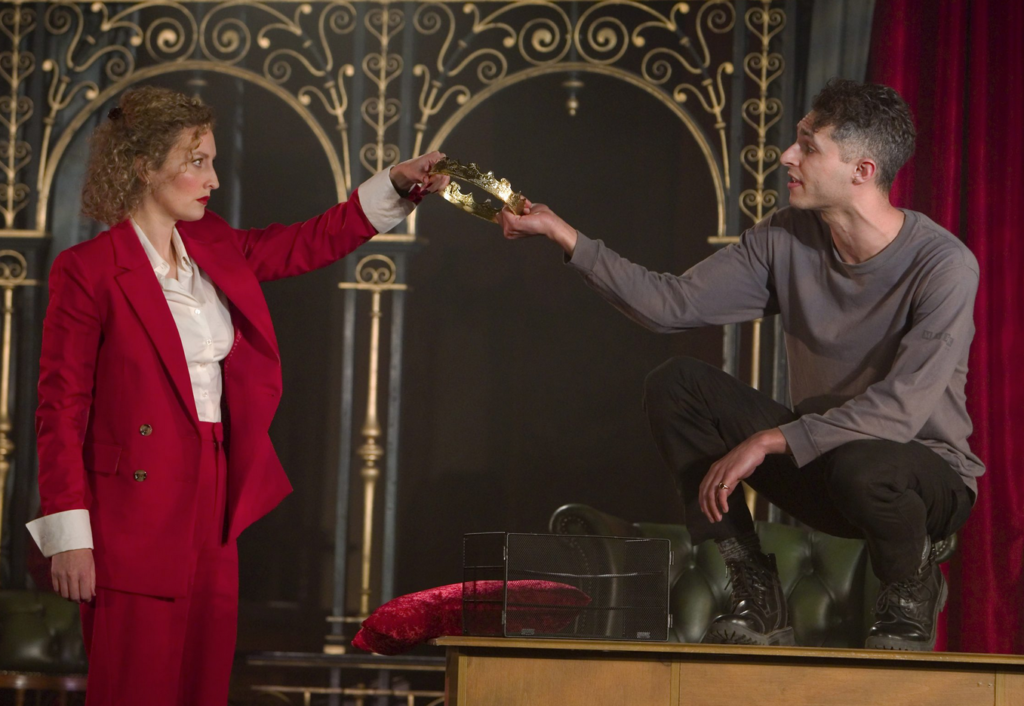
Richard II (Daniel Burke) passes the crown of England to Henri Bolingbroke (Laura Matthews). Photo Mark Dean
GSC co-founder Matt Pinches has gleeful fun as Bushy: an advisor in the Dominic Cummings or Alastair Campbell mode, using every trick he can to keep the nation’s nobles on the flawed King’s side. There is mention, naturally, of Barnard Castle, while the court’s document shredder is in frequent use.
Who can such a compromised monarch trust? Not Henri Bolingbroke (Henri rather than Henry as Bolingbroke is a ‘she’, played by Laura Matthews); who, as part of the house of Lancaster, also has a blood-line to the throne.
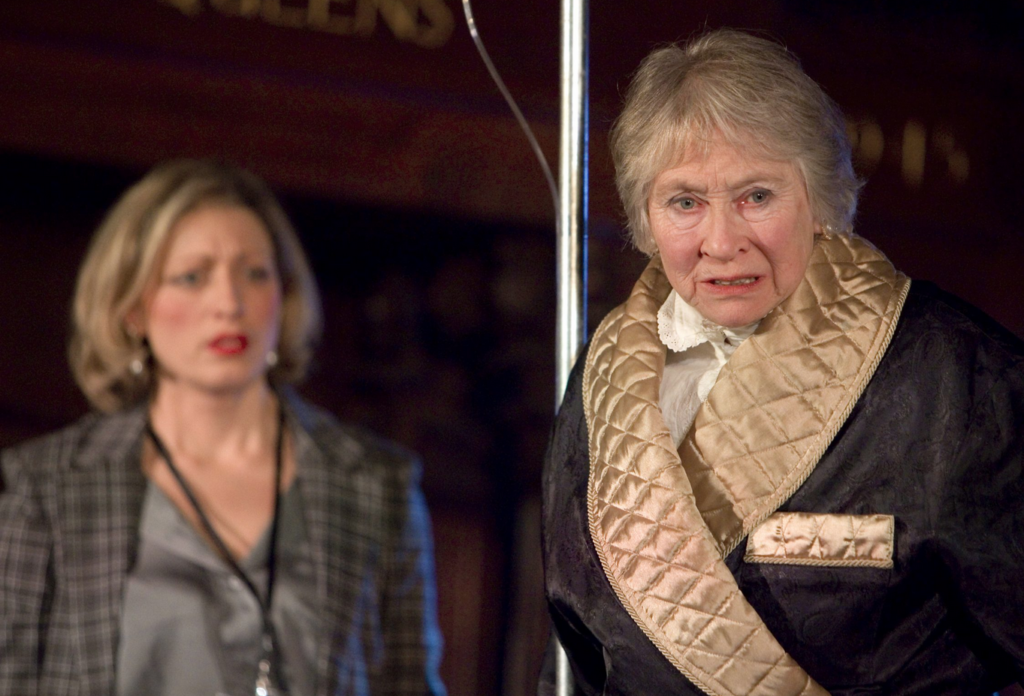
Joan of Gaunt (Anne Kavanagh), Bolingbroke’s mother, foresees a dark future for the King, while sister the Duchess of York (Sarah Gobran) looks on. Photo Mark Dean
At the King’s command, Bolingbroke and another noble, Mowbray (Eddy Payne) conduct an eye-watering duel: played out in vodka-shots, one of which is laced with bleach. Halfway through, the King intervenes and stops the duel. Mowbray is banished for life, while Bolingbroke is sent away for ten years, quickly reduced to six.
When Bolingbroke’s mother Joan of Gaunt (convincingly played by Anne Kavanagh) dies soon afterwards, Richard seizes her lands and property, depriving Bolingbroke of her inheritance. Enraged, Bolingbroke returns to the north of England with an army. The path to regime change is set.
Richard II has some of Shakespeare’s most beautiful and familiar speeches: ‘This sceptre isle…this blessed plot, this earth, this realm, this England’, for example. Yet it is less frequently performed than the playwright’s other history plays, such as Richard III or Henry V.
Perhaps its theme of one God-anointed monarch being replaced by a usurper – dangerously radical when Shakespeare wrote his play during the reign of Elizabeth I – no longer has the power to shock.
GSC’s version is staged in Holy Trinity church, its great dome bathed in red to denote the spill of blood. Against this historic backdrop, director Natasha Rickman gives the play a modern setting. Downing Street debauchery is played out at full-pelt, though an echo in the church acoustics sometimes makes words hard to catch.
The most successful scenes are often those played at lower volume: for example when Richard and his advisors sit cross-legged on a sheet-draped stage and the King contemplates his downfall.
Daniel Burke’s teasing, agile performance as Richard gains depth as the King’s power wanes and a more complex figure emerges. Laura Matthews’ portrayal of Henri Bolingbroke is harder to read. Will England’s fortunes improve under its new Queen? Will her feminine qualities help her to rule more fairly, or is this production’s central message that power invariably corrupts?
In an extraordinary final scene, Bagot (Sally Cheng), who has murdered Richard mistakenly believing it is Henri’s wish, tears the royal office-court apart. The bloodied clothes of murdered men are pulled from filing cabinets.
In this slightly uneven production, there is blood on everybody’s hands, and scant hope for a nation that is going down the pan.



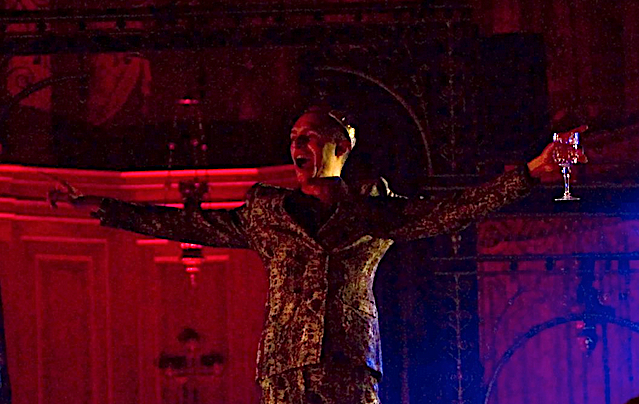
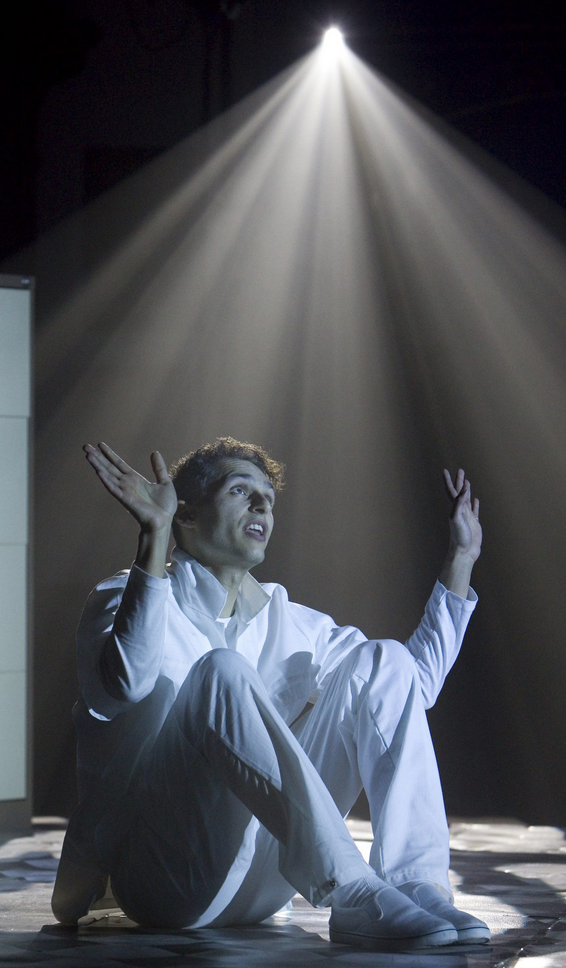
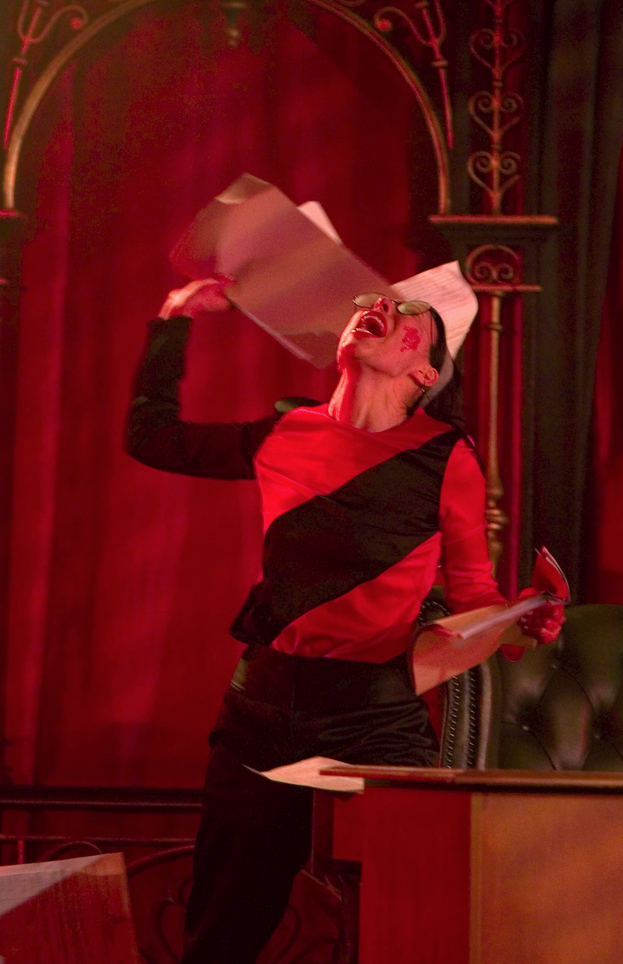











Sarah Hegarty
February 12, 2023 at 6:40 pm
Excellent review. This was an enjoyable interpretation, cleverly staged, although the acoustic was tricky at times and the relevance of the themes hard to spot.
Some strong performances – particularly when the pace slowed and the words were allowed to work their magic.